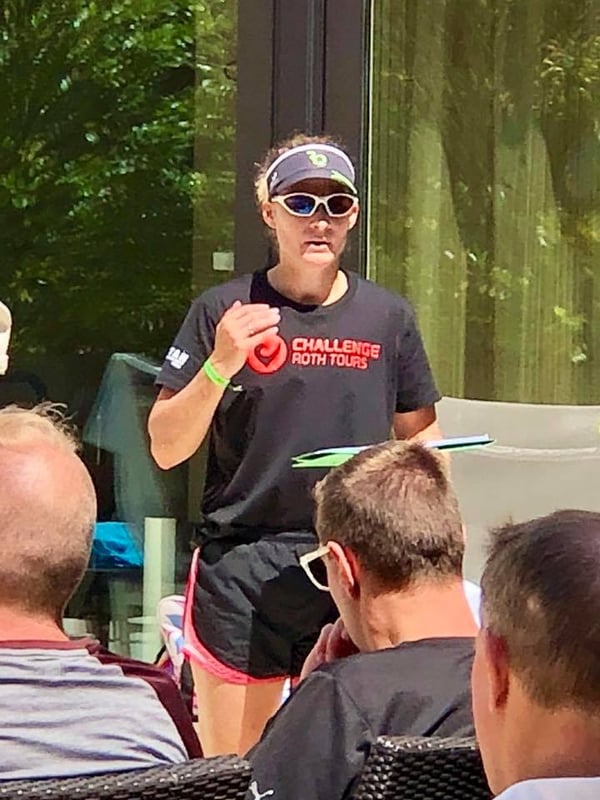Prelude To A Race: Just Two Days Until The Las Catalinas TRI
August 22, 2019
With the Las Catalinas TRI coming up in just a few days, we sat down with Jessica Jacobs to discuss preparation. Jacobs is a 4X Ironman Champion and one of the current ace coaches of RaceQuest (a Triathlon Training Camp currently running in town). We had the opportunity to talk a little bit about training, preparations, and what to expect from this year's race.
Preparation Starts Early
"Yeah, you're actually going to start your taper between 7 and 10 days out," Jacobs answered. The question? How far back training stops and preparations begin. According to most experts, at about 2 weeks out from the race you have peaked in physical fitness, and your body won't improve any more with more training. This is a mistake that many beginners and even many experienced triathletes make.
According to Jacobs the only thing you can do within 2 weeks is to ruin your fitness.
"The hay is in the barn, so to say," she continues. "You've gotta step back and wait for race day."
The keys to a good taper? Keep the body healthy. Maintaining proper hydration, resting, and making sure to keep all of the vitamins and minerals in your body at the right levels. Sleep is another underrated aspect of the taper that Jacobs swears by. The body naturally produces HGH after the first hour of sleep, which can be crucial to keeping the body energized, healed, and ready for the big race.

When The Physical Gives Way To The Mental
There's a mental aspect to the taper as well. Jacobs says that after a long stretch of training many triathletes don't know what to do with the extra time during a taper. As a result, they often fill it with other exhausting tasks like excessive housework or chores.
"It's really hard, because a lot of triathletes are super type A people," Jacobs says with a knowing smile. "I tell them to read a book, or watch a movie. Just don't go out and mow the lawn."
Watching What You Eat
Being smart with diet is key to preparing for the race, and here there are some suggestions that are applicable even to the Las Catalinas TRI. Jacobs recommends only eating foods that are easy to digest, and not trying anything brand new right before the race.
For example, 48 hours before the race Jacobs stops all vegetables. While that may seem counterproductive, the veggies' fiber can be slow for the body to digest. Carbs, the athlete's traditional pre-game friend, are the move here. However, Jacobs recommends above all else that while smaller, conscious shifts in diet can be valuable for the big race, it's a bad idea to make any big changes.
"In all of this, you don't want to make huge changes last minute. You see some people do something completely different like two days before the race and it's a horrible idea," Jacobs explains.

However, despite the taper's emphasis on rest, Jacobs explains that there are still workouts going on leading up to the race.
"You're still doing workouts," she says, "but volume comes down drastically. We do quick amounts of intensity."
Jacobs explains that this method helps to ensure that racers keep their "peak" abilities, while avoiding any chance of eroding stored endurance. It's a process of keeping the body warmed up and ready to perform at a high level without losing any long term fitness for the race, essentially helping the body avoid going "dormant". Imagine a sports car in the winter. Short sprints keep the engine in good condition and ready to move, but without using up much gas.
Keep an eye out for more tips from Jessica and her RaceQuest coaching partner Chip Beard tomorrow. And don't forget to watch the Las Catalinas TRI in just a few days!